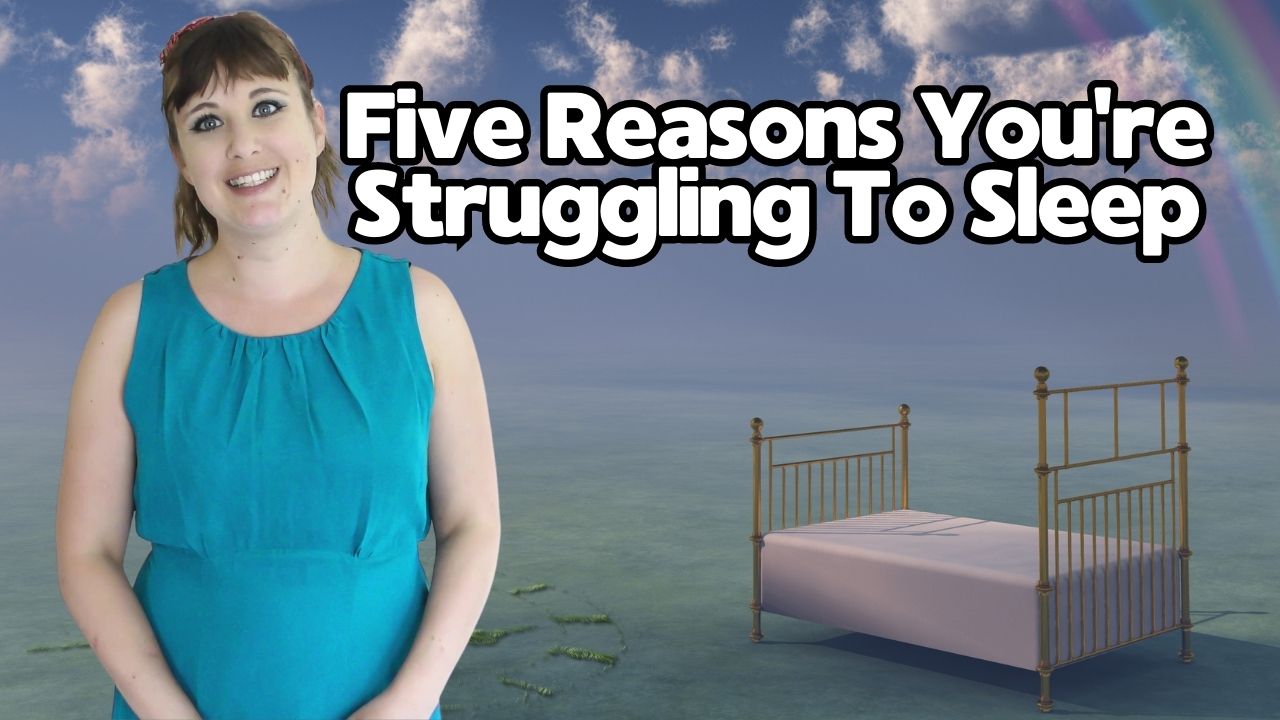As an Amazon Associate I earn from qualifying purchases.
On the JJ Barnes Blog, I check out some advice from sleep experts at Bed Kingdom for why I’m struggling to sleep and how I can fight my insomnia.
I am a terrible sleeper. Routinely, I will lie awake for hours in the night, trying to get to sleep and getting more and more frustrated. Many times I will give up and start my day at 3 or 4AM. Because of this, I’m eternally exhausted, and have developed something of a coffee dependency habit.
When Bed Kingdom came to me with some information about why I might be struggling to sleep, and what I can do about it, I had to check it out.
Struggling To Sleep
The quality of your sleep is very important. Sleep allows our bodies to repair and re-energize themselves, keeps us healthy, and supports proper brain function.
However, thousands of us are still having trouble falling asleep at the recommended eight hours for our health. In fact, in the last 30 days, there have been over 8,000 searches made on Google for “sleep better” only in the United Kingdom.
As a result, the sleep experts at Bed Kingdom have provided five reasons for why you might have trouble falling asleep and suggestions for improving your sleep habits.
1. Eat nothing before going to bed
Eating a meal or snack before going to bed could keep you awake at night. Your body’s circadian rhythm, or sleep-wake cycle, can be disrupted by eating at night, preventing it from shutting down to fall asleep.
Additionally, eating late at night can keep you awake. The muscles that break down food have to keep working when they should be resting when we eat late at night. This might make it harder for you to go to sleep, preventing you from getting the deep, restful sleep you need to feel refreshed the next day.
Be sure to finish your meal at least two to three hours before going to bed. Additionally, attempting to eat your meals at the same times each day is beneficial. Your body’s circadian rhythm can function more effectively when you eat at regular times, resulting in better sleep.
2. Make your bedroom darker
At the point when it is dim, our bodies produce melatonin. Melatonin, also known as the “hormone of darkness,” regulates our body temperature and induces a state of restful sleep, assisting us in falling asleep.
Because our bodies naturally make more melatonin when it is dark, having bright lights in your bedroom can make less melatonin, which makes you feel more awake. Even if you are able to fall asleep, your body may not get the necessary amount of REM (rapid eye movement) sleep.
Use blackout curtains or blinds to darken your bedroom. Through the windows, light from the sun, moon, and streetlights can enter the bedroom, making it difficult to sleep. If you get any light from the hallway, close the door to your bedroom, wear an eye mask, and put away any electronics at night.
3. Know what makes you stressed.
Many people who are stressed out in their lives have trouble sleeping. When stress levels are high, it can be hard to fall asleep, which can lead to less sleep and more stress. Issues at work, monetary concerns, or relationship issues can be justifications for why stress is keeping you up around evening time.
To get the rest you need, it can be important to know what makes you stressed. You might have the option to track down ways of disposing of any anxieties, such as requesting help on the off chance that undertakings become excessively or dropping a portion of your obligations whenever the situation allows.
Normal activity could assist with combatting pressure related a sleeping disorder, stay away from caffeine, and adhere to a severe rest plan. Additionally, CBT (Cognitive Behavioural Therapy) may aid in stress reduction. You might be able to alter your actions and, in the end, have a better night’s sleep by recognizing your irrational thoughts and replacing them with ones that are more upbeat.
4. Limit your alcohol consumption
Despite the fact that drinking alcohol can make you tired, it can also affect how well you sleep, causing you to wake up more frequently than usual.
There are two kinds of sleep: both non-REM and rapid eye movement (REM) sleep can be affected by alcohol. Drinking alcohol can reduce the amount of REM sleep you get at night, making you feel tired the next day. REM sleep is the deepest and most restorative type of sleep.
Alcohol consumption prior to bedtime can also exacerbate sleep apnea. When the airway collapses or becomes blocked while sleeping, this common condition occurs. Because alcohol can relax muscles, it can make this problem worse when you sleep.
Drink a lot of water and stop drinking at least four hours before going to bed to get rid of the alcohol.
5. Turn off your screen before going to bed.
Screen time can stimulate the brain, making you feel very awake when it’s time to go to sleep. Even if you check your email or social media before bed, your mind will still be active.
Screen light can also suppress melatonin levels, so your body won’t tell you when it’s time to sleep. The light from a screen that is too close to your face can also make it hard to see, making you feel dizzy or have a headache just before bed, which will make it hard to get a good night’s sleep.
Make an effort to put your electronic devices down at least an hour before going to bed. Better methods for winding down just before going to sleep include taking a bath, reading a book, or even going for a walk.
How much sleep does an adult require?
Albeit how much rest you get every day is significant, different parts of your rest likewise add to your wellbeing and prosperity. Since good quality sleep is also important, it’s important to limit things that affect your sleep quality. Adults should get between seven and nine hours of sleep each night. Talk to your general practitioner or another medical professional if you require assistance or additional guidance regarding your sleep schedule.
Amazon and the Amazon logo are trademarks of Amazon.com, Inc, or its affiliates.




